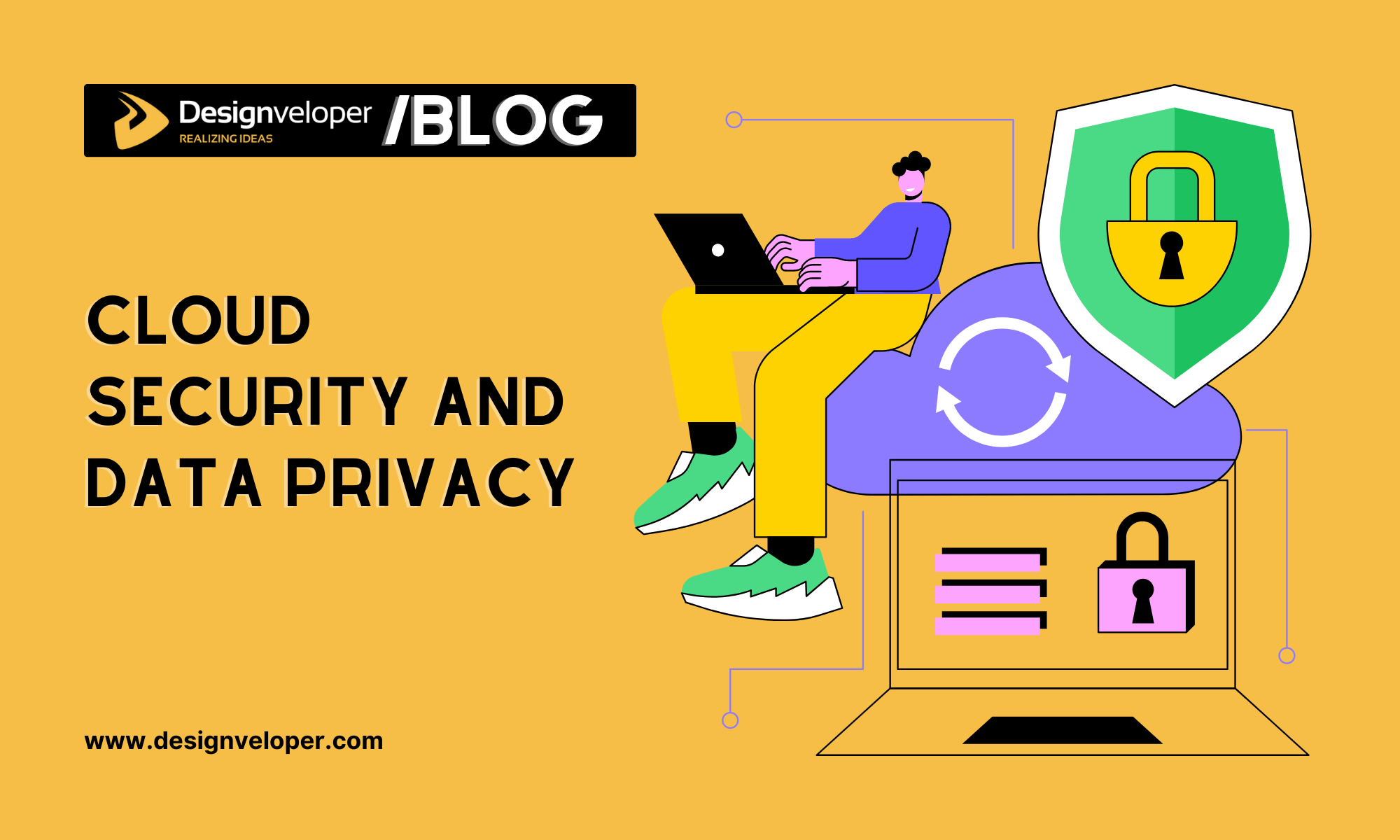
As the world moves increasingly into a digital realm, the security of data stored in the cloud is an ever-growing concern for businesses and individuals alike. Cloud computing enables access to our most sensitive and critical information from any device with internet capability, making it extremely attractive to those looking for easy and efficient storage capabilities. But this convenience also comes with risks – unless managed properly, our data isn’t as secure as we might like or assume. That why we need to know about cloud security and data privacy.

That’s why it’s essential to understand what measures can be taken to ensure that your data remains private, protected, and available only to authorized users on approved networks and systems. In this blog post, we’ll explore the various ways you can securely use cloud services while maintaining total control over who has access to your business’s information – from encryption strategies to identity management solutions – so that you have peace of mind knowing that your company’s confidential electronic files remain secure in today’s uncertain online landscape.
What is Cloud Security and Data Privacy?
The importance of cloud security and data privacy continues to grow as cloud technology use surges upwards. Cloud security encompasses how one maintains the confidentiality, integrity, and availability of personal and sensitive information stored or processed in the cloud environment. It is the measures they employ to defend against cyber intrusion and malicious attacks.
Data privacy, on the other hand, pertains to maintaining the confidentiality of, if applicable, personal and sensitive information before, during, and after storage or processing distributes the same in a cloud environment. This inculcates proper consent for data collection and processing, ensuring proper disaster preparedness, and implementing secure data handling practices. Data encryption can also be used as a means to protect stored and transmitted data from unauthorized access, manipulation, or theft.
Recommended reading: Balancing Personalization and User Privacy in the Digital Age
Benefits of using Cloud Security and Data Privacy
Data security and privacy are key concerns in today’s digital world, including the workings of businesses and even the everyday lives of individuals. Cloud security is taking root due to its plethora of advantages over traditional firewall measures for business entities. Firstly, cloud security allows flexibility and scalability that allow a business entity to easily alter its security needs based on evolving dynamics. Additionally, higher levels of automation provided by cloud security solutions mean less manual job costs and effort.
Identity and Access Management (IAM) solutions allow for comprehensive control over who can access sensitive data and applications, while also making sure that these users remain compliant with policies. Businesses can finally be confident that their sensitive information is protected since cloud security is not only reliable but cost-efficient as well.
Moreover, data privacy is vital for any business or individual to retain trust and build a reputation with customers. By opting for the use of cloud security solutions, a business entity can be assured that its consumers’ sensitive information is stored and managed securely.
Recommended reading: 6 WordPress Security Issues: Cybersecurity Risks of Managing
Challenges of using Cloud Security and Data Privacy
With the continuous shift towards cloud computing, business operators are moving their data and operations to the cloud. Oppositely, this move necessarily comes with its own set of challenges, especially in the guarantees for preserving privacy and safeguarding cloud security. The prime challenge that businesses today have to struggle with is securing important data in public clouds. IAM solutions can assist to provide solutions to that dilemma and are largely used as cybersecurity measures for regulating access to data in the cloud.

Security Compliance is another common challenge, as large companies have to meet specific regulations and industry standards. With the increased complexity of today’s cloud computing environment, business entities must ensure that all security measures are up to date at all times.
Also, businesses need to adhere to several regulations and standards such as GDPR or HIPAA if they hoard any kind of sensitive data in the cloud. Non-compliance with these rules typically means skyrocketing costs coupled with heavy fines and legal problems.
Recommended reading: Navigating the Cloud: How Web Hosting Drives Efficiency in Corporate Travel Platforms
How to ensure your data privacy with Cloud Security Solutions?
In recent years, more and more people are trusting cloud solutions for their businesses and personal uses. Although the convenience of the cloud is amazing, the globe is concerned about how to deal with data privacy issues.
Fortunately, there exist cloud security solutions that will help you ensure no one can easily access your data. It should contain encryption functions, controls over who may access it, and monitoring mechanisms to detect any irregular usage activity. Besides that, choose a good provider, one that understands its clients’ privacy stance as well and has good experience in its lines.
Some factors to consider include choosing reliability and making sure whatever solution you pick meets industry regulations and fields like GDPR or HIPAA standards. To learn more about cloud security solutions and find a reliable provider, you can explore N-ix for valuable insights and resources.
Recommended reading: 6 WordPress Security Issues: Cybersecurity Risks of Managing
Best practices for maintaining data privacy in the cloud
Data privacy in the cloud is a serious concern as more and more companies rely on cloud-based services. However, there are several best practices that businesses should follow to ensure the privacy of their data in the cloud. One of the most important practices is when choosing a cloud provider with strong security measures in place and also a known entity that protects their customers’ data well.
Other good practices would include using strong authentication protocols, regularly monitoring activity logs, thoroughly checking up on software and security protocol updates until they cascade across all of the organization’s systems, and regularly refreshing knowledge bases on old threats, new attacks, and emerging trends/technologies so that organizations can stay one step ahead of potential threats.
Recommended reading: Optimizing Adobe Commerce Cloud Performance: Tips for Speed and Efficiency
Final Thoughts
In the end, it’s important to maintain data privacy in the cloud for security and composure. The solutions for securing the cloud and maintaining data privacy have many advantages: improved system reliability, protection from stolen services, secure communication services, and automated backup procedures, among others. However, since reliance on the cloud entails a degree of uncertainty when it comes to storage or some service functions, ensuring sufficient data privacy has proved difficult. Considering this aspect is key as you evaluate various cloud security solutions before getting committed; that way, you can maximize their advantage while minimizing their disadvantage.






Read more topics





























































